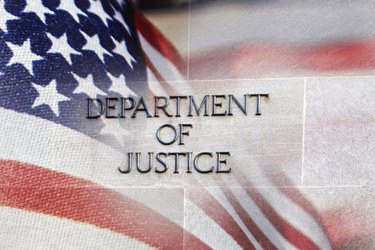What Sponsor Companies Need To Know About The Updated DOJ Corporate Compliance Programs
By Darshan Kulkarni, Pharm.D., MS, Esq., principal attorney, Kulkarni Law Firm, and host of Darshan Talks podcast

In the ever-evolving landscape of corporate compliance, the criminal division of the U.S. Department of Justice (DOJ) updated its Evaluation of Corporate Compliance Programs document. Released in March 2023, it has significant implications for sponsor companies conducting clinical research. This document, which serves as a guide for prosecutors in assessing the effectiveness of a company's compliance program, underscores the importance of robust, proactive measures to detect, prevent, and address misconduct.
Three “Fundamental Questions”
The document emphasizes the need for sponsor companies to establish a culture of compliance, with mechanisms in place that encourage ethical behavior and deter misconduct. To do so, the program recommends that the prosecutor ask three “fundamental questions”:
- Is the corporation’s compliance program well designed?
- Is the program being applied earnestly and in good faith? In other words, is the program adequately resourced and empowered to function effectively?
- Does the corporation’s compliance program work in practice?
The document recommends a variety of processes to achieve these goals.
Confidential Reporting Mechanisms
This includes the creation of confidential reporting mechanisms, which are highly probative of whether a company has established corporate governance mechanisms that can effectively detect and prevent misconduct. These mechanisms should be well-publicized and accessible, allowing employees and other stakeholders to report potential or actual criminal conduct without fear of retaliation.
Investigations
The document also highlights the importance of thorough investigations into complaints or red flags. It encourages companies to ensure that investigations are independent, objective, appropriately conducted, and properly documented. The company's responsiveness to investigations and accountability for the response to any findings or recommendations is also emphasized.
Consequence Management
Moreover, the document underscores the importance of consequence management procedures, which identify, investigate, discipline, and remediate violations of law, regulation, or policy. Prosecutors are advised to assess whether a company enforces these procedures consistently across the organization and ensures that the procedures are commensurate with the violations.
Compensation Disincentives
In terms of compensation structures, the document suggests that companies should incentivize compliance by designing compensation systems that defer or escrow certain compensation tied to conduct consistent with company values and policies. It also suggests that companies should enforce contract provisions that permit the company to recoup previously awarded compensation if the recipient of such compensation is found to have engaged in or to be otherwise responsible for corporate wrongdoing. This is reiterated in the Criminal Division’s Pilot Program regarding Compensation Incentives and Clawbacks released at the same time.
Compensation Incentives
The document further emphasizes the importance of positive incentives, such as promotions, rewards, and bonuses for improving and developing a compliance program or demonstrating ethical leadership. Prosecutors are advised to examine whether a company has made working on compliance a means of career advancement, offered opportunities for managers and employees to serve as a compliance “champion,” or made compliance a significant metric for management bonuses.
Voluntary Self Disclosure
In cases of fraud or misconduct, the U.S. Attorneys’ Offices Voluntary Self-Disclosure Policy, as outlined by the DOJ, encourages companies to voluntarily disclose misconduct by employees or agents before it becomes publicly known. The policy is designed to incentivize self-reporting and ensure individual accountability for misconduct. The policy provides clear benefits for companies that self-disclose, including more favorable resolution terms. To qualify, disclosures must be voluntary, timely, and include all relevant facts about the misconduct. Companies must also fully cooperate with the investigation and take appropriate remediation steps. If these conditions are met, the policy offers significant benefits, including potential reductions in penalties and the possibility of avoiding the appointment of an independent compliance monitor.
Merger Due Diligence
Lastly, the document highlights the importance of comprehensive due diligence of any acquisition targets, as well as a process for timely and orderly integration of the acquired entity into existing compliance program structures and internal controls. This is particularly relevant for sponsor companies involved in mergers and acquisitions, as flawed or incomplete pre- or post-acquisition due diligence and integration can allow misconduct to continue at the target company, causing harm to a business’s profitability and reputation and risking civil and criminal liability.
The updated DOJ document underscores the need for sponsor companies conducting clinical research to establish robust compliance programs that proactively detect, prevent, and address misconduct. By doing so, these companies can foster a culture of compliance, mitigate risks, and ensure the integrity of their clinical research activities.
About The Author:
 Darshan Kulkarni, PharmD, MS, Esq., is the principal attorney at the Kulkarni Law Firm, known for its dedication to legal excellence in the pharmaceutical industry. An entrepreneur and an innovator, Kulkarni serves as an adjunct professor at Drexel University School of Law. He serves on multiple boards including the board of the Emily Whitehead Foundation, contributing to transformative work in pediatric cancer research. Beyond his legal and academic commitments, Kulkarni hosts the DarshanTalks podcast, a platform where he engages thought leaders in candid discussions about the life sciences.
Darshan Kulkarni, PharmD, MS, Esq., is the principal attorney at the Kulkarni Law Firm, known for its dedication to legal excellence in the pharmaceutical industry. An entrepreneur and an innovator, Kulkarni serves as an adjunct professor at Drexel University School of Law. He serves on multiple boards including the board of the Emily Whitehead Foundation, contributing to transformative work in pediatric cancer research. Beyond his legal and academic commitments, Kulkarni hosts the DarshanTalks podcast, a platform where he engages thought leaders in candid discussions about the life sciences.
